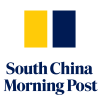China wants its diplomats to show more fighting spirit. It may not be intended to win over the rest of the world
The rise of the so-called ‘wolf warriors’ heralds a more aggressive approach to promoting the country’s official line. Analysts warn this is likely to harm the country’s image even if their careers benefit as a result.
Shortly before her promotion last year to head the foreign ministry’s information department, Hua Chunying lamented the lack of fighting spirit among China’s diplomats in promoting the country’s preferred narrative.
She admitted China had a lot of problems getting its message across at a time of deepening rivalry with the United States and scrutiny of China’s global ambitions in an increasingly chaotic world.
But for Hua, who just wrapped up a four-month training course focused on President Xi Jinping’s domestic and foreign policies at the Central Party School, diplomats’ inaction and their lack of fight is partly to blame.
Published in a front-page article in July in Study Times, the flagship newspaper of the party school, her remarks echoed a key message that the leadership and diplomats have repeated since early last year, that Communist cadres must prepare for a“long-term struggle” and be prepared to fight through adversity.
The Covid-19 crisis is obviously one of those testing moments.
The pandemic appears to have lent further support to a younger generation of Chinese diplomats, many of whom often have become increasingly strident and combative, to the surprise of their overseas counterparts.
According to Zhao Tong, a senior fellow at the Carnegie – Tsinghua Centre for Global Policy in Beijing, the repeated calls for fighting spirit have fed a national narrative that it is time for China to stand up to the perceived hostility from the West.
“With the blessing from the top leadership, it is fashionable and beneficial for diplomats to turn themselves into ‘wolf warriors’,” he said referring to a popular nationalistic film.
“Defending China and pushing back against the US narrative becomes a thing of political correctness.”
In a bid to repair its tarnished image over its initial handling of the Covid-19 outbreak, Beijing has started an aggressive propaganda offensive to deflect the blame for the pandemic.
Apart from sending test kits, masks, ventilators and other medical supplies to 120 countries, the country has also dispatched over 100 health experts to Italy, Serbia, Iran, Pakistan, Venezuela and several other Asian countries, according to state media and China’s top envoy to Washington Cui Tiankai.
- John Seaman, a research fellow at the French Institute of International Relations, said the failure of Europe and the US to prepare for and manage the coronavirus crisis so far has provided an opportunity for Beijing to promote its narrative – showing how it can forcefully impose emergency measures to contain the crisis while casting doubt on the effectiveness of other governments.
Hua’s colleague Zhao Lijian caused a diplomatic uproar last month when he shared a conspiracy theory that the US army might have spread the coronavirus in Wuhan and was attacked by US President Donald Trump for doing so.
Cui distanced himself from Zhao and dismissed such baseless claims as “crazy”, which would only hurt the already damaged relations between the two sides.
Chinese diplomats around the world have gone into overdrive to vigorously fend off any criticism of China’s handling of the outbreak.
“China is turning the pandemic into a geopolitical weapon? Will soldier think of reward amidst fierce battle?” Hua said in a Twitter post last week. “All we’re preoccupied with now is save more lives and provide more assistance,” she said.
[...]
> See the article on website of South China Morning Post

Media:

Share






